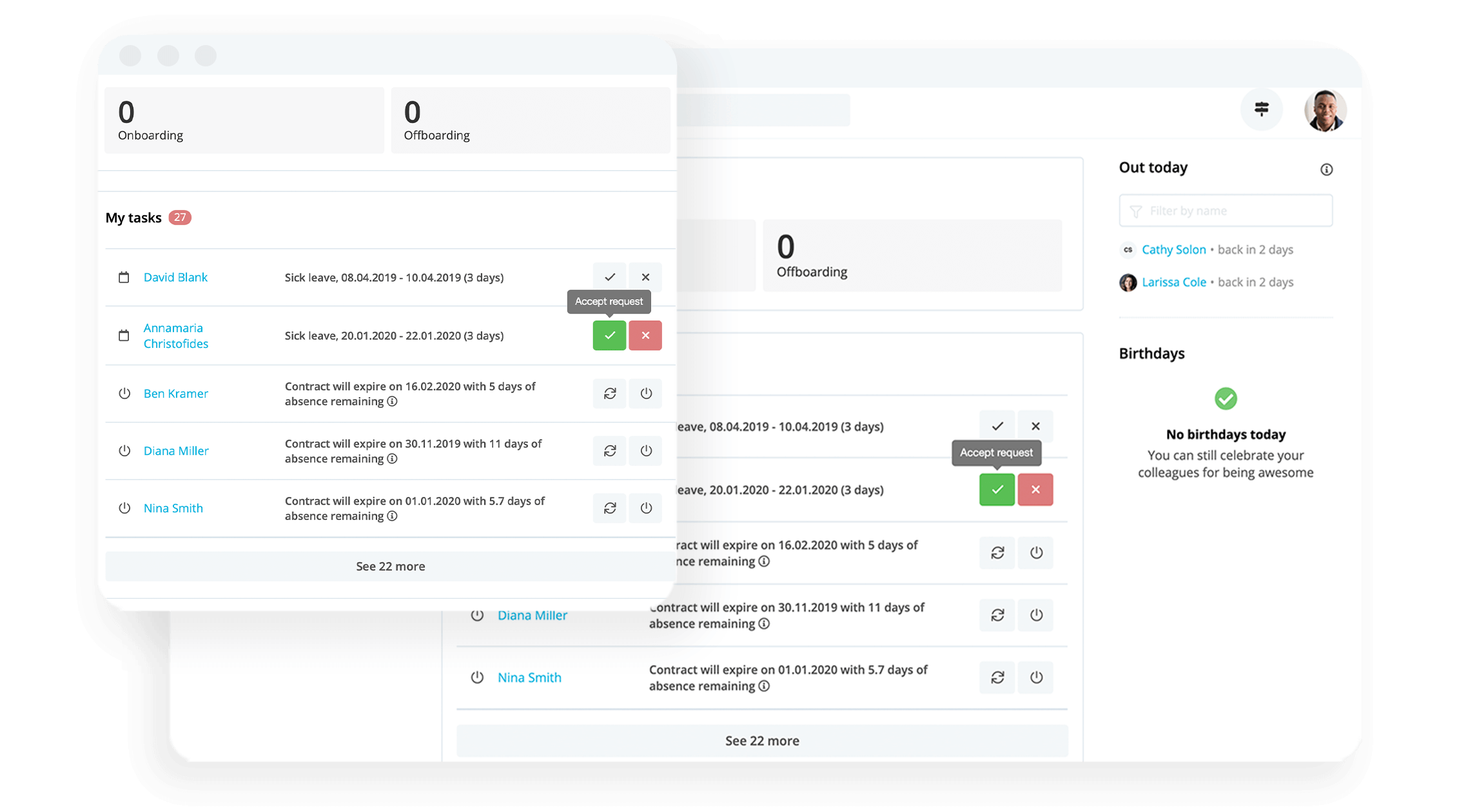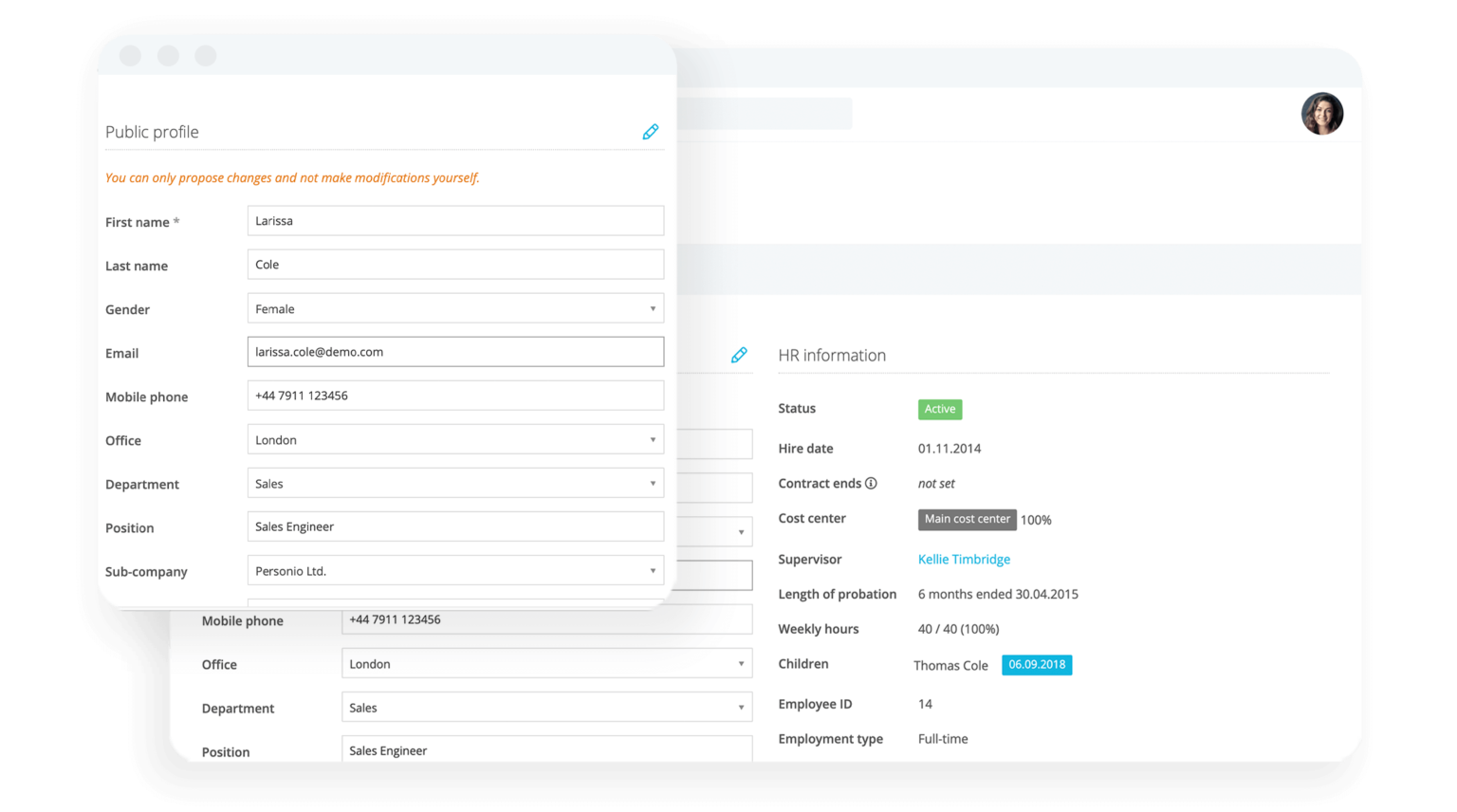Do PEO's Still Make Sense In This Era of Hiring?

Professional employer organisations (otherwise known as PEOs) have gained increasing popularity over the last few years – particularly with the growth of small and micro-businesses who need the services of an HR team but can't afford to employ people full time.
They’re also useful for companies expanding into new regions. But what does a PEO typically do and are they worth using? Read on to find out.
What Is A Professional Employer Organisation?
A professional employer organisation (or PEO, for short) is a company that provides the services of an HR team – but externally. Sometimes they provide individual services, which companies of varying sizes – from super-small to super-big – can use on their own.
On other occasions, a PEO can actually provide all the value that a traditional internal HR organisation would be able to provide, but they aren’t employed directly by the company they are working for.
Think of it like this: Using a PEO is like outsourcing all your HR needs to another company. They might work for you on a contract basis, but they’re not actually your employees.
What Is The Difference Between PEO And HRO?
The differences between a PEO and an HRO are subtle. A professional employer organisation takes full responsibility for all aspects of HR for you. They can source employees, hire them and decide what to pay for them.
On the other hand, a human resource outsourcer (HRO) deals with everything that a PEO deals with – but they don’t actually employ people directly. They leave that to you.
Ensure Nothing Gets Forgotten About

Automatically assign tasks to colleagues and track which to-dos are still outstanding. Get reminders of tasks that are due and important dates like probations, work anniversaries and birthdays.
Manage HR Tasks With PersonioWhat Is A PEO And How Does It Work?
Now that we know a PEO is essentially a way of hiring HR experts, on a smaller scale, without the fixed costs of employing someone to do HR jobs, let’s talk about how having a PEO actually works.
PEOs can help companies with many HR services, including the following:
Hiring In Different Jurisdictions
A PEO can help make sure that you find the right people in the right places, as well as ensuring they sign the right contracts (and that the contracts are correct for the region in the first place!).
Even if you’re just hiring at home, they can also take some or a lot of the pain out of recruitment. For example, they can help ‘anonymise’ internal recruitment, modernise recruiting processes, advise on (or execute) the right social media recruiting strategy for your company, and make sure you avoid any pitfalls with e-recruitment.
Managing Payroll For Your Company
If you’re expanding to a new country or region where the employment laws and statutes are different it’s very helpful to know that everyone is paid the right amount, on time.
If you’re using an international PEO, it’s critical that they know about international banking practices and how to comply with tax laws (so there isn’t any confusion about tax withholdings!)
Helping Your Organisation Comply With Local Regulations
Whether you employ people in that region on a full-time, part-time or contract basis, you can get a PEO to provide expertise on relevant laws and legislation.
Organising Employee Benefits
If you don’t have a great HR information system like Personio it can be tricky to make sure that everyone has the right employee benefits in place – especially if the benefits change!
A PEO can help provide advice and guidance about the right kind of benefits to have (if you’re a startup, or working in a new location) and they can even advise on cultural norms and expectations for that region, including what benefits packages will attract the best employees for your company.
Easy HR Collaborations With PEOs

Personio is your HR cockpit for managing all HR core tasks. With our user access rights, external service providers can only access pages they are allowed to see and edit, and you guarantee seamless HR processes.
Discover Personio's FeatureWhat Are The Advantages Of A PEO?
Let’s break down some of the most common advantages of a PEO, based on company size…
For Companies With Changing Staffing Needs:
If your company employs varying numbers of people at different times then it might be tricky to have enough employees to cope with the workload when there’s a peak, and they might not have enough to do to keep themselves busy when there’s a hiring trough.
Think about an organisation that provides seasonal or festive trade, for example. If you are in the business of running events at Christmas or an outdoor restaurant that only operates in the summer months, you would have to hire a large number of people to service those events when they take place. And you wouldn’t have any work for them to do in the off-season.
When those employees are working for you, although they might be on a short-term contract or only work a few hours, HMRC still considers them to be workers. As such, they’d be entitled to all the standard statutory employment rights, including the following that gov.uk lists…
At the least, workers need:
To be given the National Minimum Wage
protection against unlawful deductions from wages
thestatutory minimum level of paid holiday
the statutory minimum length of rest breaks
to not work more than 48 hours on average per week or to opt-out of this right if they choose
protection against unlawful discrimination
protection for ‘whistleblowing’– reporting wrongdoing in the workplace
to not be treated less favorably if they work part-time.
They may also be entitled to:
That might seem like a lot of work for one HR person to manage – and it is! In fact, it’s a lot of work for a whole HR team to manage at the best of times. That’s why PEOs are often used to help HR teams, particularly during times when workloads are highly variable.
For Small Companies:
When you think about the amount of work in hiring new employees, it’s also easy to understand why small or micro-businesses might want to consider getting a PEO in to help them.
Imagine if you’re a start-up.
You are ready for the business to grow and have the financial resources to invest in hiring the right people. But you know you’re not an HR expert. You could hire one, sure, but if you had to employ an HR expert, you wouldn’t be able to afford the marketing executive that will really help your business grow.
It’s a big challenge, and the smaller a business is, the bigger the challenge is.
That’s why small companies sometimes use PEOs. They know that PEOs can help provide the HR expertise that their company needs, without having to hire someone full time. And they can scale the amount of advice or expertise they pay for up or down depending on the company’s needs at the time.
For Large Organisations:
There are good reasons for employing PEOs if you work in a large company, too. The same logic applies in terms of efficiency as employing seasonal workers… When there is just too much for the current number of HR employees to do, it might be worth considering outsourcing some (or all) of their work.
A good PEO will be able to provide local knowledge that, even with the best intentions, your internal HR team may not have – especially if you’re expanding rapidly to new regions.
They can also help with very nitty-gritty tasks that your HR team might not be comfortable handling, especially if they don’t have to do them very often, like handling immigration or staff placement in other countries.
A good professional employer organisation might also be able to offer services that your HR team knows you need, but just doesn’t have the time to do themselves. For example, PEOs might be able to come in and handle all your employee surveys, administer your bonus schemes, create and roll out new employee motivation initiatives, or handle downsizing or redundancies.
Ensure Nothing Gets Forgotten About

Automatically assign tasks to colleagues and track which to-dos are still outstanding. Get reminders of tasks that are due and important dates like probations, work anniversaries and birthdays.
Manage HR Tasks With PersonioWhat Are The Drawbacks Of A PEO?
At the end of the day, the question you have to answer is: What will help me treat my employees in the best, most fair, and equitable way possible that will allow me to be compliant with the law, pay them appropriately, and make them proud to do the job they do?
In all honesty, PEOs are probably not going to help your employees feel as warm, welcomed or well-looked-after as an internal HR team will make them feel. If you’re employed, directly, by a company it helps you become part of something bigger – particularly if you work in HR.
A PEO will always be external. That means they take away the pains associated with arduous or uncomfortable HR tasks, but they also take the joy away, too.
Think long and hard before you outsource your entire HR team. If you outsource your HR tasks to a PEO you’ll miss a lot of the nuance, and the internal intelligence, that a dedicated in-house team can provide.
They’re great for transactional tasks and helping with ‘busy work’, but they are physically and emotionally distanced. The service they provide will never replace the human touch of someone who works for you and genuinely cares about your employees.
Is Having A PEO A Good Idea?
Only you can answer that question. If your HR team is overworked, it might be worth trying out a PEO and getting them to help with certain tasks to see how well they perform. This will help you get a sense of whether this enhances your HR offering to your employees or not.
But remember, outsourcing HR tasks to a PEO is not the only solution!
What Is The Difference Between A PEO And An HRIS?
An HRIS – or Human Resources Information System is a software tool designed to make it easier to manage HR processes and data.
As we explain in our article on Why Your Organisation Needs A Human Resources Information System (HRIS), an HRIS can save your HR employees a lot of time.
Also known as an HRMS (HR Management System), an HRIS can help your team streamline information so they can access the data easily. It can help you remain GDPR-compliant, improve your candidate experience (and your employee experience!), and save a lot of time.
Do You Need An Effective HR Software?
In fact, there are so many benefits to HR software that we would like to invite you to download our template on ‘Why we need HR software’ to read for yourself. Or, if you’re already convinced about its value, you can complete the template and send it to your CEO!

